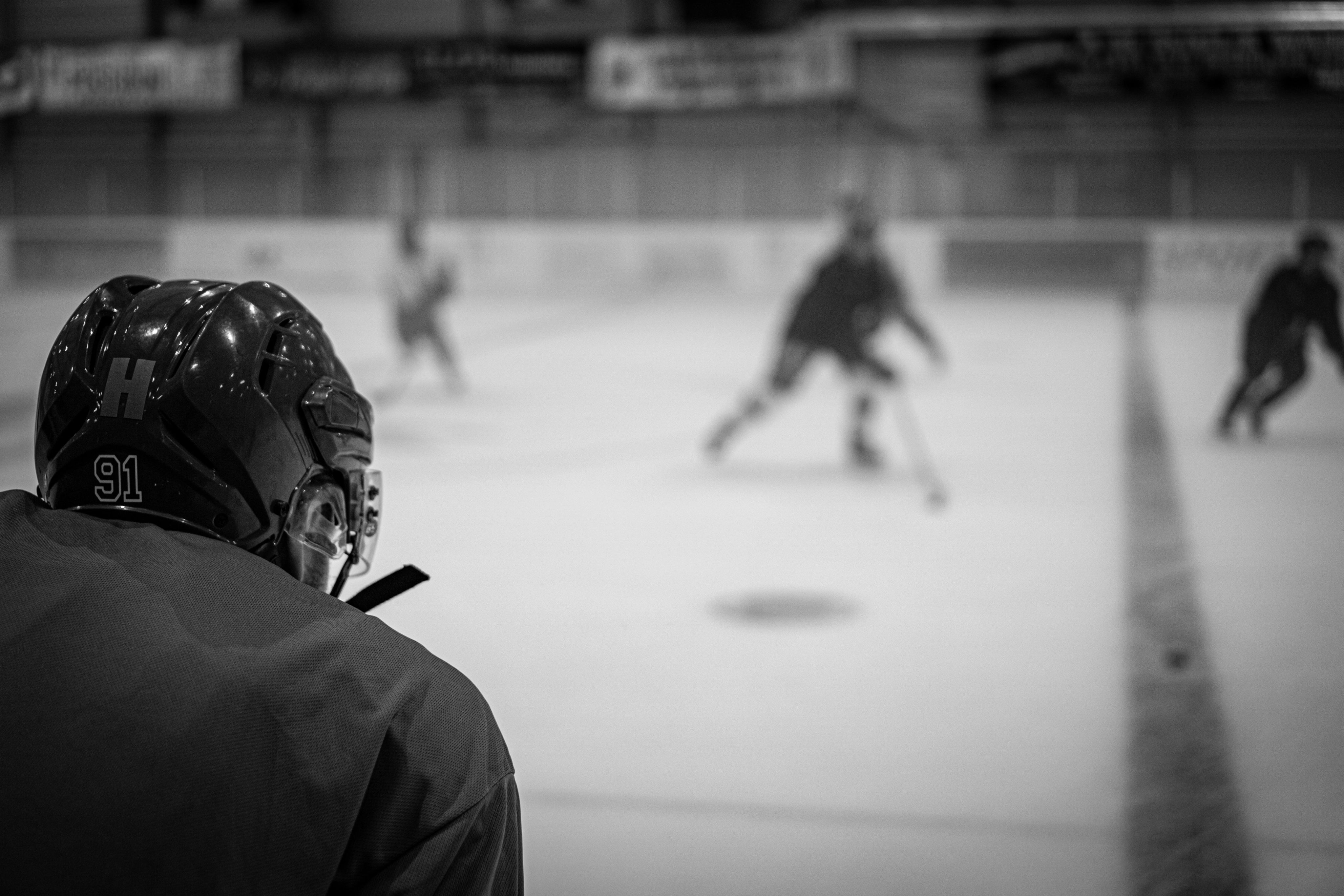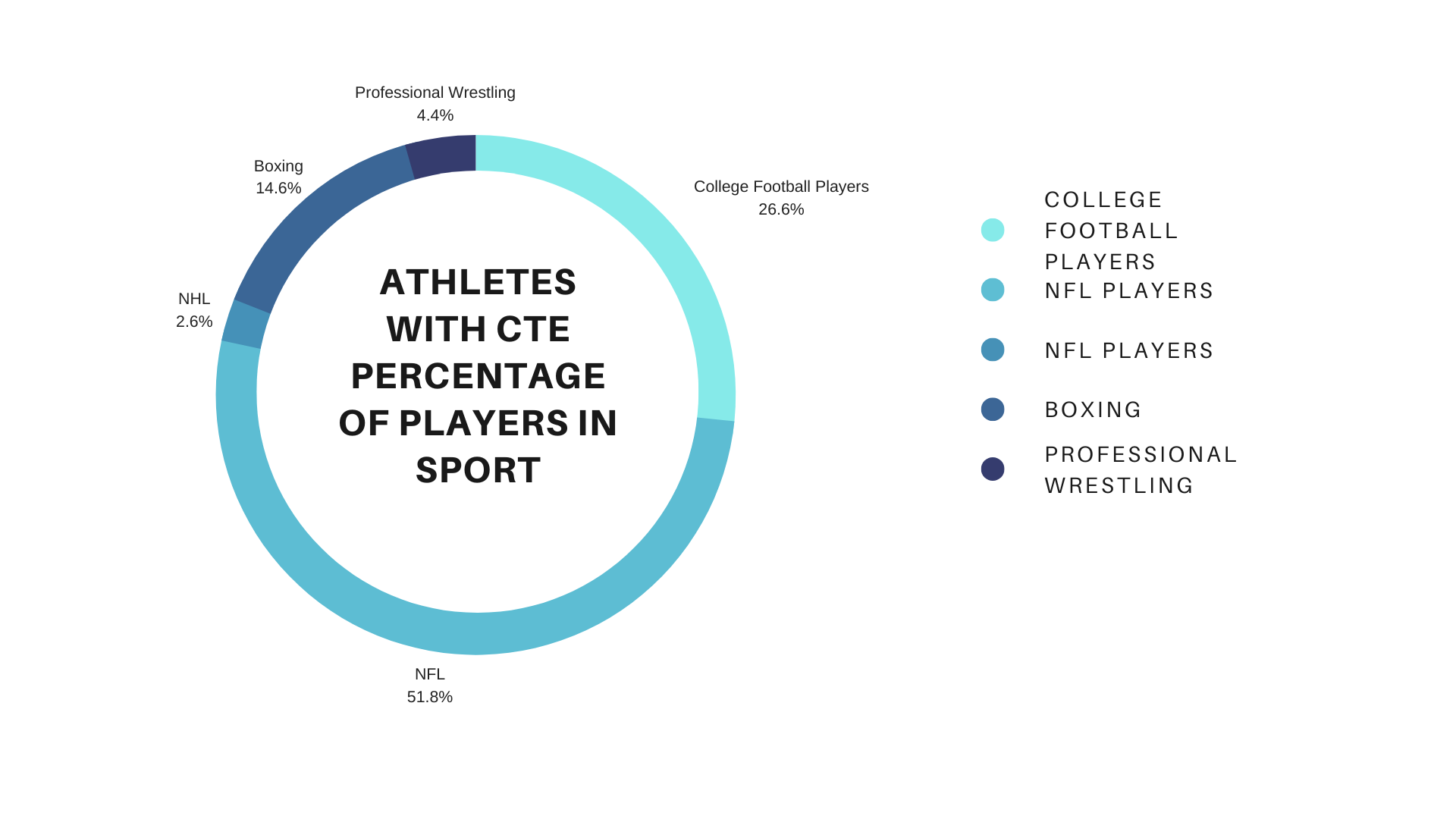How CTE and Mental Health Affect Hockey Players

Each additional year of playing ice hockey may increase a person’s chance of developing CTE by about 23 percent according to a study done by Boston University.
NHL players have had their struggles with mental health.
Ten former NHL players who have passed away have been diagnosed with CTE.
Take a look here:
While CTE is a common issue in Football, it has grown in hockey throughout the years.
According to the Mayo Clinic: “The first form of CTE may cause mental health and behavioral issues including depression, anxiety, impulsivity, and aggression. The second form of CTE is thought to cause symptoms later in life,”
Chart is done by Christian Gardecki. This chart is based on Data given from UNITE Brain Bank at Boston University

A history of CTE
Throughout the years in the sport of hockey mental health has become an overarching topic in the game, with many players passing away due to struggles commonly seen with mental health. In the summer of 2011 three NHL players lost their lives. What has the NHL done about it?
In that summer, Rick Rypien, Derek Boogard, and Wade Belak all passed away. All three were known for being enforcers, which means they would regularly engage in fights. A couple of years later, former NHL defenseman Steve Montador also passed away. All four deaths were ruled a suicide.
CTE has become a hot topic as of late, and in the NHL there is no exception. In 2010 Bob Probert passed away while with family on a boat, it was then found out that he was diagnosed with CTE. Probert was one of the toughest to ever play in the NHL, known for his bruising style.
Mathew Torgerson is a professional hockey player agent based out of Winnipeg and admired the work of players like Rypien.
“Watching those guys, you knew you’d have a good game, and when I found out that Rypien died, it was shocking,” said Torgerson, who watched Rypien play for the Manitoba Moose based out of Winnipeg. “CTE is no joke, and hockey is a dangerous sport and head injuries are so common.”
According to a study done by Boston University’s Chobanian & Avedisian School of Medicine, it stated that “each additional year of playing ice hockey may increase a person’s chance of developing CTE by about 23 percent.”.
There are ten known former NHL players who passed away due to CTE found after their death. The most recent one was Garrett Burnett who passed away earlier in 2022.
One name included was Hockey Hall of Famer Stan Mikita, who played without a helmet. NHL players were only required to wear helmets starting in the late 1970s. Mikita was one of the best scorers of his generation, and the finding of CTE in his brain was shocking to many people.
“That number is really staggering,” said Sam Tracy, a hockey fan from Maine. “It’s surprising, and the NHL needs to help their players post-career, I think just constant contact with ex-players and the league needs to be done,”.
Superstar Examples
Some players have had trouble after their careers, an example comes with former Stanley Cup Champion and First Overall pick Joe Murphy, who has been living homeless throughout Ontario for the last handful of years.
While former Minnesota Wild Captain Matt Johnson has had troubles with the law. Ian White, a former defenseman for over 500 games had similar issues, but he has found himself again playing in the Federal Prospects Hockey League, the same league where Torgerson has over 25 clients playing.
“The first form of CTE may cause mental health and behavioral issues including depression, anxiety, impulsivity, and aggression. The second form of CTE is thought to cause symptoms later in life,” That is according to the Mayo Clinic.
What are the leagues doing?
CTE is more common in football players and has resulted in a $750 Million settlement with the NFL. But in the NHL, there is still work to be done, and the NHLPA has a player assistance program to help its players, past and present, with these types of mental health issues. However, in some cases they have not reached out to the families of those who have passed away.
In a documentary done by TSN in 2022, White’s ex-wife says that the NHLPA never reached out to him during his struggles. She also says that the NHLPA also never reached out to her or her family about what they could do to help the family who was going thru financial hardships.
In one example, according to former NHL player Daniel Carcillo, Steve Montador suffered 19 concussions while playing in the league. That included four in a 12 week span while playing with Carcillo in Chicago. Montador seeked treatment after his 19th concussion, and in 2013 was sent to the minors with the Blackhawks. He wasn’t included on the playoff roster, or even the playoff reserves for the Blackhawks Stanley Cup run that year.
Carcillo thinks that Montador was blackballed by the Blackhawks, a team that has been filled with controversy with all three of their Stanley Cups in the 2010s. The NHLPA also never stepped in to help Montador who passed away in 2015, two years after he would’ve won his first and only Stanley Cup. After Montador’s death, it was called upon by the NHL community to establish a formal exit-procedure for players having post-concussion syndrome.
“Stories like that are just the worst, and I know what those players are feeling,” said life-long hockey fan Jonathan DeSousa. “The NHL should step in and take a closer look at their players after they retire”.


